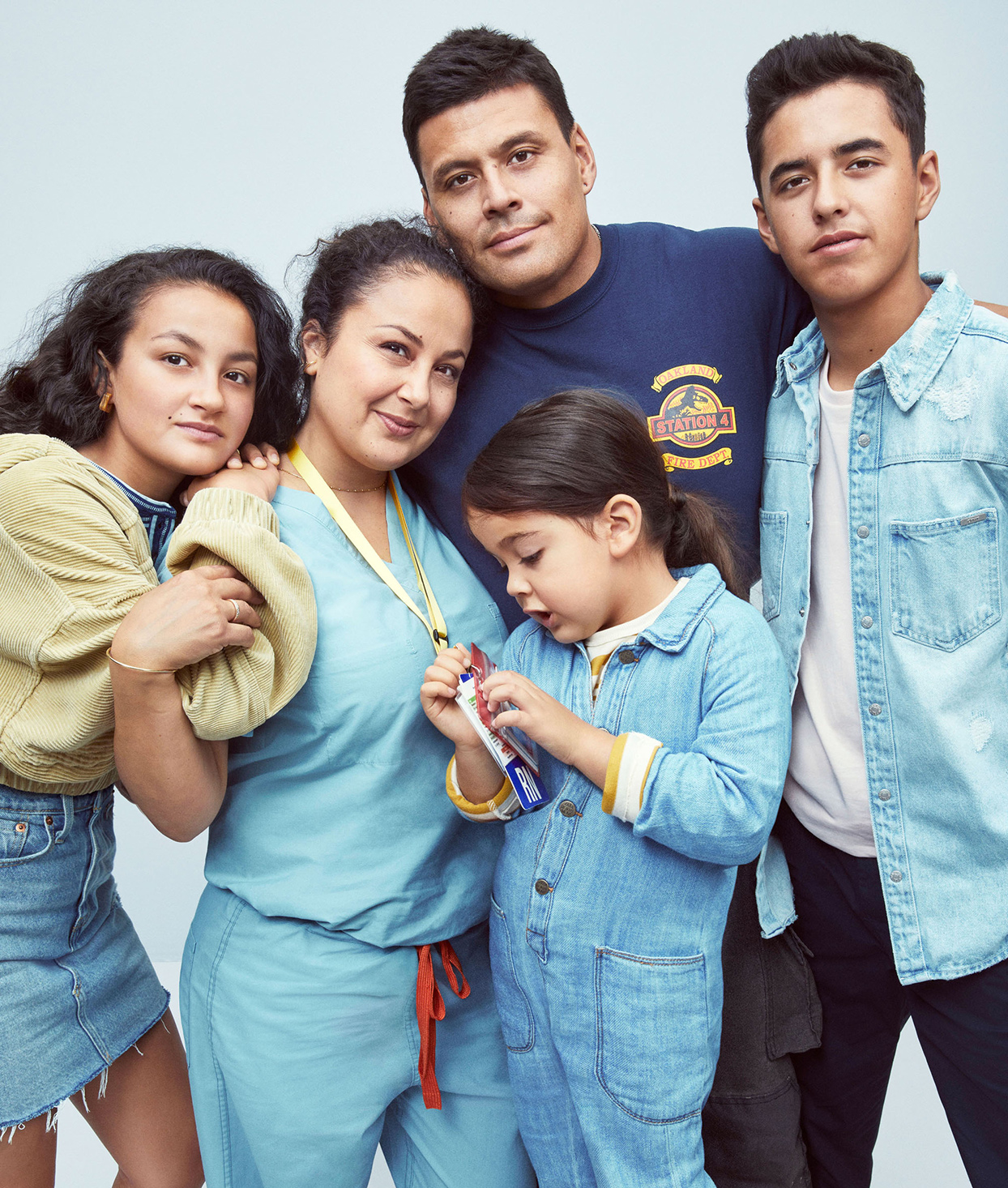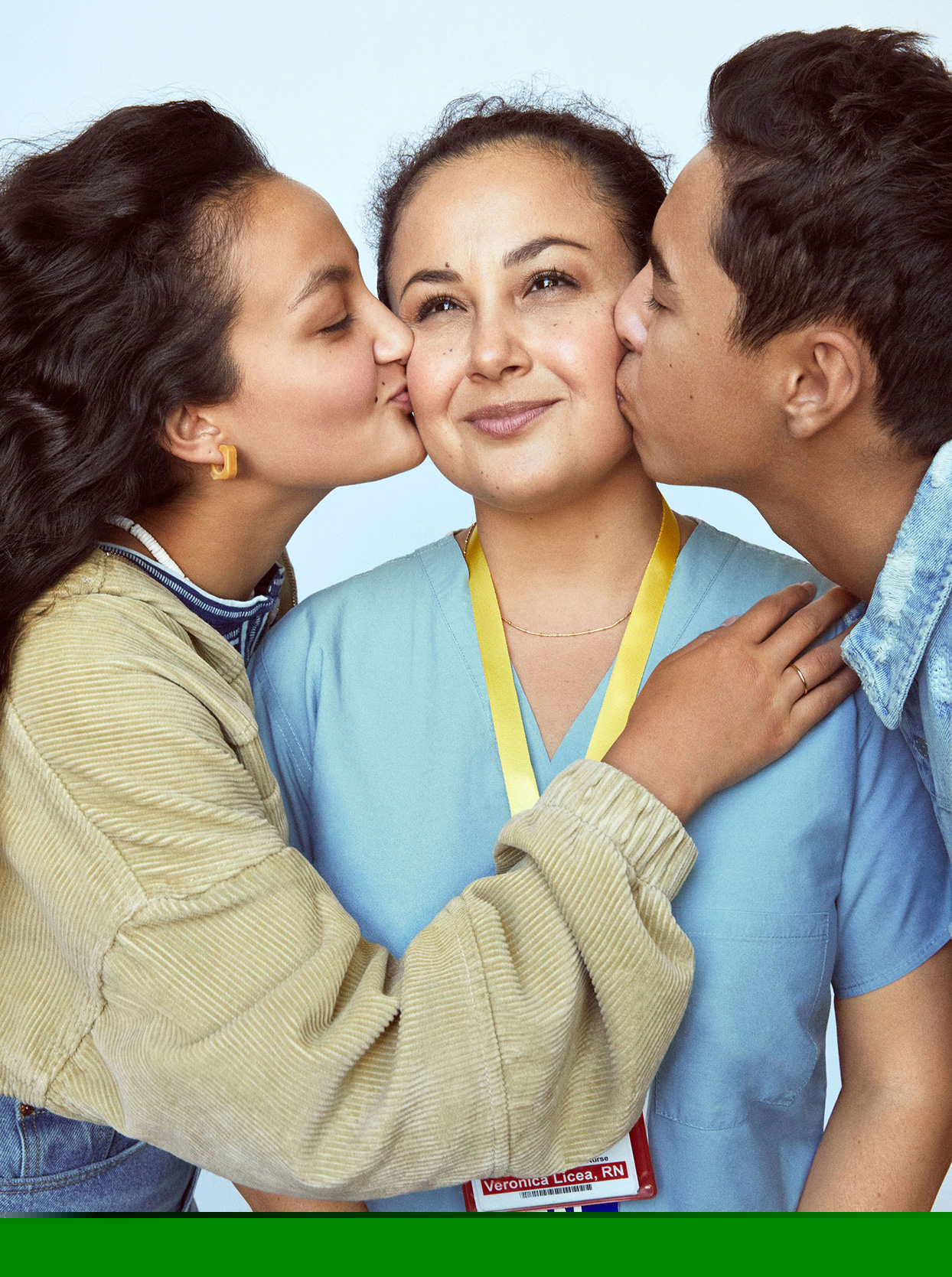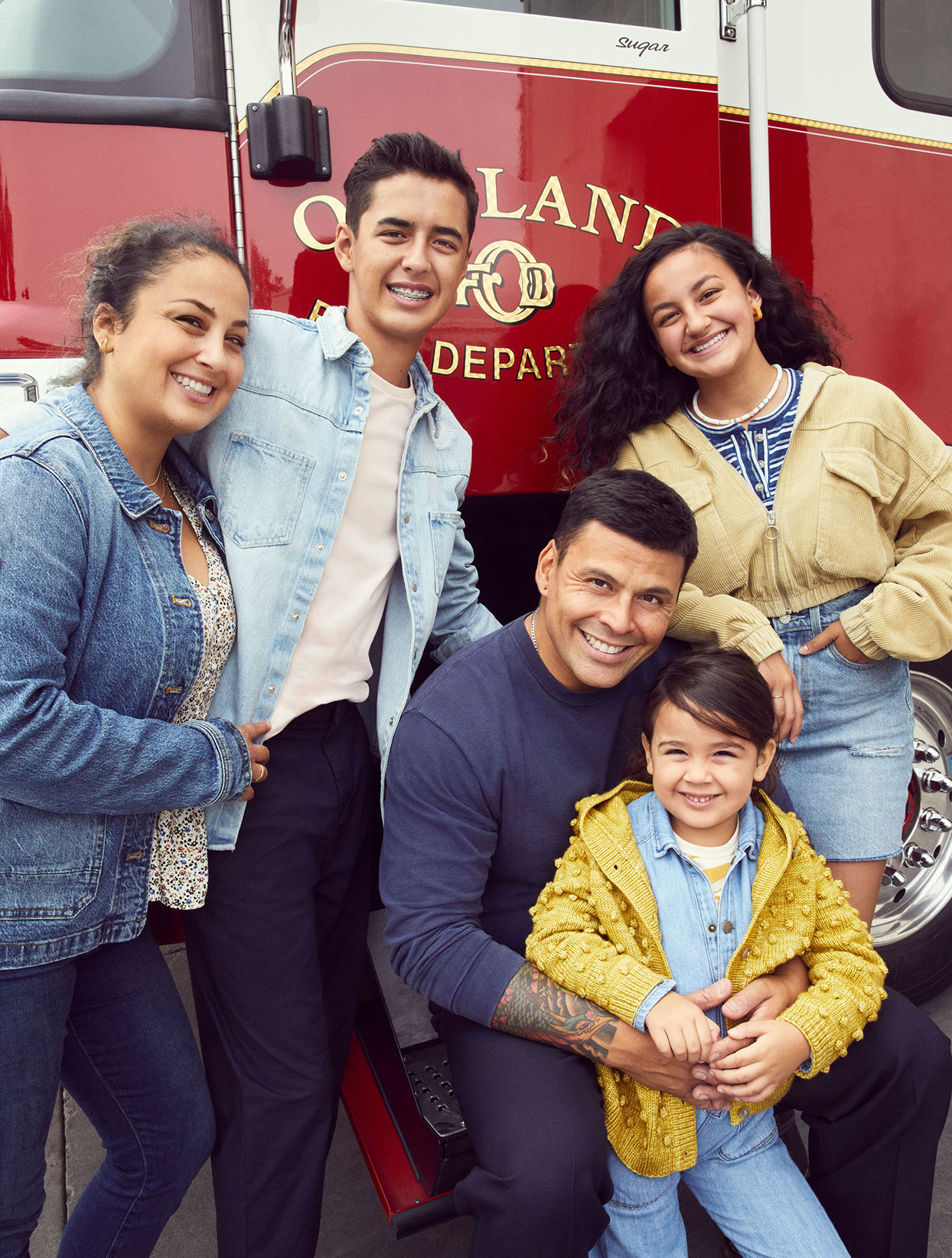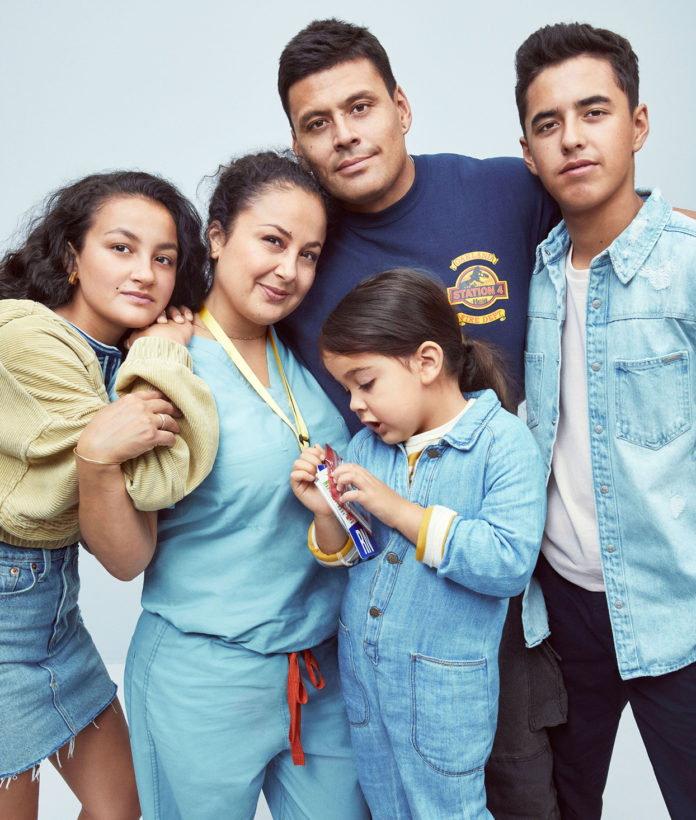
Veronica Licea can’t pinpoint when she and her husband, Luis, realized the pandemic would upend their close-knit family. At first, they felt a sense of doom. “Luis anxiously watched the news all day,” she says. “He felt like he had to figure out, ‘How do we protect ourselves?’ I just felt like I was kind of swimming.”
Many parents recognize this dread, but for the Liceas, it soon escalated from concern to daily reality. A firefighter-paramedic, Luis is the first port of call for those who need emergency transport to a hospital; Veronica is an E.R. nurse. At first, her Oakland hospital was eerily calm. “Experts were saying, ‘Don’t go to the hospital unless you absolutely have to,’” Veronica says. “So it was awkward silence for us. In the E.R. we never say ‘It’s quiet today,’ because as soon as you do, patients roll in. I remember thinking it was strange how empty it was—and then suddenly it wasn’t.”
In mid-March, breathless patients began calling 911 and arriving at the E.R. in droves, and both Luis and Veronica saw that they’d be working long hours, facing countless exposures, and seeing little of their kids or each other. They worked on little sleep, nerves raw. “We were in a state of shock,” says Veronica. “I looked at my husband and said, ‘We have to do what we can with what we have. We just have to keep doing our jobs.’”

Parents to 15-year-olds, Luis II and Bela, as well as a 4-year-old daughter, Mia, Veronica and Luis strategized ways to keep their kids safe as the virus crept across Alameda County, which would go on to have thousands of cases. (At press time, there have been nearly 20,000.) To decontaminate, Luis showered at the firehouse. Veronica “took everything off in the garage and put it in a designated area. Luis would leave a clean robe in the garage, and I would put it on, come in, shower, and change.” Every day, after every shift.
Luis II and Bela provided full-time child care for their toddler sister, all while coping with the difficulties of virtual learning and the loss of freedom and friends. The rare evenings the Liceas spent as a family were not always easy. Exhaustion and frustration bubbled up—and sometimes spilled over.
“It’s hard that the kids don’t know what you deal with all day, and you come home and they’re saying, ‘We’re out of chips,’ and you’re thinking, ‘I watched someone pass without their family today,’” Veronica says. “But I had to put that away. For them, losing school and their social lives, parenting a little kid, is huge.” The family began writing to each other, with the rule that they wouldn’t speak about the contents of their letters. “It provides them with a safe place to communicate, and gives us time and space to give a well-thought-out response,” Veronica says.

What has emerged most strongly for Veronica is pride in how ably the family met this challenge, and the enduring love they all share. “It’s beautiful to see how close our kids are. We’re a blended family—when Luis and I met, our older kids were both 5, and now they basically live like twins.” Veronica and Luis marvel at how capably the teens care for Mia and have been moved, Veronica says, to see their children find the good in an impossible time: “Every day, we all say what we’re grateful for. We have this home. We live near the ocean. We’re safe, we’re healthy. And we have each other.”
This article originally appeared in Parents magazine's November 2020 issue as “The Kindness Hall of Fame.” Want more from the magazine? Sign up for a monthly print subscription here
Parents magazine













